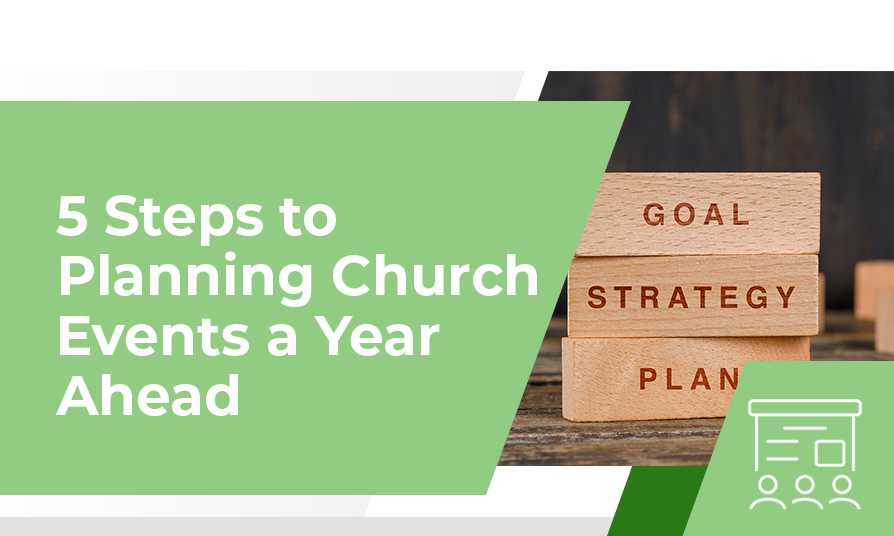Part of your responsibilities as a church leader is to be an excellent steward of church finances. Events tend to be a significant portion of church ministry. Therefore, it makes sense to budget for church events and monitor them closely.
Here are three easy steps to budget for church events and keep your ministry on track for the year.
Step #1: Determine What Events You’ll Host This Year
In a recent blog post, I mentioned the importance of planning church events a year in advance. The first step to planning in advance is to determine early which events to host throughout the year. Facilitate a meeting with church staff and put all potential events on a large wall calendar (erasable is best). This is a great visual that helps you see what the year might look like.
Next, host a follow-up team meeting to review the calendar with department leaders, the Executive Pastor, and the Senior Pastor. Discuss potential workload issues for your staff as well as budgets for each event, which leads us into Step #2.
Step #2: Create a Budget for Each Church Event
Next, you’ll need to create a budget for each individual event. Here’s a list of items you should account for when creating a detailed budget:
- Marketing — To promote your church event, you’ll need marketing communication. This includes things like website design, logos, advertisements, flyers, and email newsletters.
- Guest Speakers — Decide whether you’ll pay guest speakers honorariums and/or their travel and lodging expenses.
- Catering — Meals or snacks at events can sometimes take a huge portion of the budget. Consider asking for donations from local restaurants or have several church members volunteer to make the food.
- Equipment and Decor Rentals — This may include renting tables, chairs, three-way radios for communication, tents, sound and lighting equipment, etc.
- Signage — Most likely, you will need signs around the church campus to help event participants locate key areas.
- Merchandise — If you plan to sell books, DVDs, or other items at the event, you’ll need to figure in your initial purchasing costs for these items.
- Security — For larger gatherings, you may want to hire security personnel to ensure a safe event space.
- Print Materials — Some extra print materials may include name tags, staff lanyards, workbooks, handouts, etc.
Step #3: Review the Budget
Depending on how your church handles the annual budgeting process, budgets for events may roll up into each department’s budget for the year. Regardless of how this is handled, you should review each church event budget before approving the event to take place. If an event is too costly, you can likely scale it back instead of canceling it altogether. That’s why reviewing is such an important step in the budgeting process.
Church event planning can quickly get out of hand if there isn’t a clear process. To help you stay focused, shortcut the budgeting process with this Event Budgeting Template (see below).




Pingback: Budgeting for Church Events